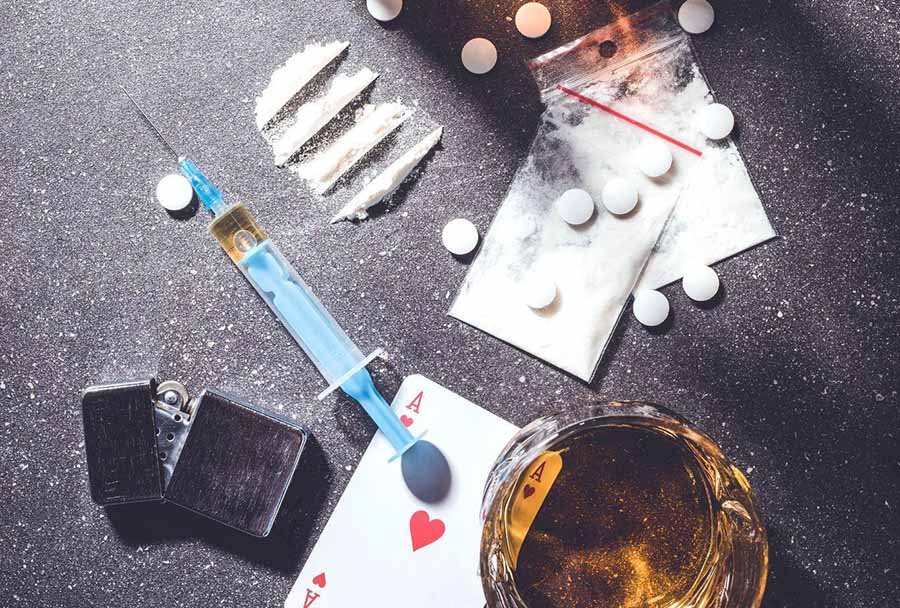It can be a difficult and complex journey to seek help if someone is struggling with addiction.
Addiction has massively adverse effects ranging from physical health problems to emotional and behavioral concerns, so addiction victims should not take the search for help lightly. Seeking professional addiction treatment by service providers like sober living in Los Angeles can make all the difference in regaining control of your life.
Read on for practical tips about getting the support needed and finding qualified assistance with addictions to achieve total recovery.
Table of Contents
The Different Types Of Addiction And Their Effects
Although behavioral addictions can occasionally strike out of nowhere and when it is least expected, substance addictions are the most common type of addiction. However, some of the more prevalent types of addiction concerning substance abuse include:
Alcohol Addiction
Drug or alcohol addiction, also known as substance use disorder, is caused when someone frequently consumes excessive amounts of alcohol or cannot control their drinking.
Alcohol abuse involves:
- Drinking excessively.
- Utilizing coping mechanisms for life situations.
- Engaging in legal trouble due to alcohol usage.
- Facing severe financial or familial impacts due to the person’s addiction.
Prescription Drug Addiction
Prescription drug addiction is when a person regularly uses prescription pain relievers for recreational purposes or in a way the doctor did not intend. It presents the same risks of drug abuse and addiction as non-prescribed drugs and can have similar, serious consequences. Often this type of drug and alcohol abuse is considered an unexpected problem because these substances are usually prescribed in legitimate medical situations.
Drug Addiction
Drug addiction is an unhealthy mental dependence on drug consumption. Drug abuse problems have physical, psychological, and social consequences, such as impaired judgment, loss of bodily control, and difficulties dealing with partners, employers, and law enforcement. Drug addiction is also known as substance use disorder and means that a person’s addiction is severe enough to continue regardless of destructive outcomes.
Heroin Addiction
By definition, Heroin addiction meets the criteria for substance use disorder and represents the end of extreme end drug abuse. It marks the point at which a person’s drug use has taken over their life. This disorder typically includes an intense craving for the drug in question and mental and physical effects resulting from regular and excessive usage.
Opioid Addiction
Opioid addiction is a chronic disease involving opioids that severely threatens public health. A person with an opioid addiction depends on the drug, which can lead to compulsive drug abuse to maintain their drug-seeking behavior. Opioid addicts may suffer from a substance use disorder that can even be life-threatening if left untreated.
Various Recovery Techniques For Addiction
The effects of addiction can be hard to overcome, and the road to recovery is often long.
Finding the proper treatment for your specific type of addiction is critical, as multiple options are available depending on the severity of an individual’s condition.
Addiction treatment options include:
Treatment Facility
The mental health services administration offers a wide range of treatment programs to help those suffering from addiction or substance abuse. The mental health services administration staff provides these services, including mental health professionals such as psychiatrists, psychologists, nursing staff, and social workers.
Treatment programs in a rehab facility may involve:
- Inpatient detoxification and hospitalization.
- Intensive treatment of mental disorders.
- Inpatient residential rehabilitation.
- Day-treatment centers.
- Outpatient treatment.
Developing an individualized plan for treating addiction is key to successful recovery; experienced addiction professionals can help build a plan that fits each individual’s unique needs.
A professional treatment provider has comprehensive mental health resources available to help individuals cope with mental health problems and lead healthier lives.
Counseling

Addiction counseling can be a powerful tool for drug-free and holistic recovery from substance use treatment.
Addiction counseling or behavioral therapy can help individuals pinpoint problematic behaviors, identify underlying causes of addiction, address co-occurring mental health issues, navigate life challenges associated with recovery, develop self-mastery skills, and gain insight into addictive behaviors.
As opioid use continues to rise throughout the country, it is vital to have access to treatment providers trained to ensure safe and drug-free addiction treatment based on best practices, including techniques that can help treat opioid forces as well as other substances of abuse.
Therefore, seek treatment with a counselor to start addiction recovery.
Support Groups
Joining a support group for addiction can be a great treatment plan to find substance abuse treatment programs and manage one’s struggles with alcohol and drug addiction via group behavioral therapies.
For those who have been struggling with substance abuse or mental illness, attending recovery services such as alcoholics anonymous, narcotics anonymous, and other 12-step meetings, helps individuals to remain involved in treatment programs and engage in self-care practices for long-term success.
By attending group meetings, members learn that they are not alone in dealing with addiction and develop understanding among peers going through similar experiences.
Clinical trials have found that these confidential support groups provide comfort and empathy and can help severe problems treat substance use addiction.
With the help of treatment providers and support groups, individuals can gain the confidence needed to confront their addiction on the path toward recovery.
Family And Friends
A supportive family and friends with severe problems, such as substance abuse, are essential to provide emotional, physical, financial, and spiritual support throughout recovery.
The role of family and friends in effectively treating addiction cannot be overstated.
Family individuals are often instrumental in helping a person to seek out the kind of help they need, including individual counseling.
Family therapy can help catalyze productive communication among family members and serve as an effective platform to discuss goals, expectations, and boundaries related to drug and alcohol addiction and substance abuse.
Depending on the severity of the addiction, some family members may also need guidance for dealing with withdrawal symptoms or temptations. Additionally, family therapy can play an essential role in helping provide education about the specifics of the addiction and its impacts on people’s lives.
Conclusion
Getting help for an addiction is not easy, but it is possible to find treatment. When seeking drug addiction treatment, various options are available to those willing to take the first step. From local support groups and self-help resources to professional rehab centers and financial aid, people can access various programs and services that offer individualized help.
Some national institutes and organizations provide education on addictions and support services such as counseling and therapy options.
Finally, any information service, such as searching online or calling a helpline for substance abuse and mental health, can be incredibly beneficial when trying to find out more information on the best way to seek help for an addiction. Researching all avenues of assistance can lead people toward the right treatment path, often with excellent results.
With commitment and perseverance, even the most severe forms of addiction are manageable, leading to long-lasting recovery and better quality of life.










